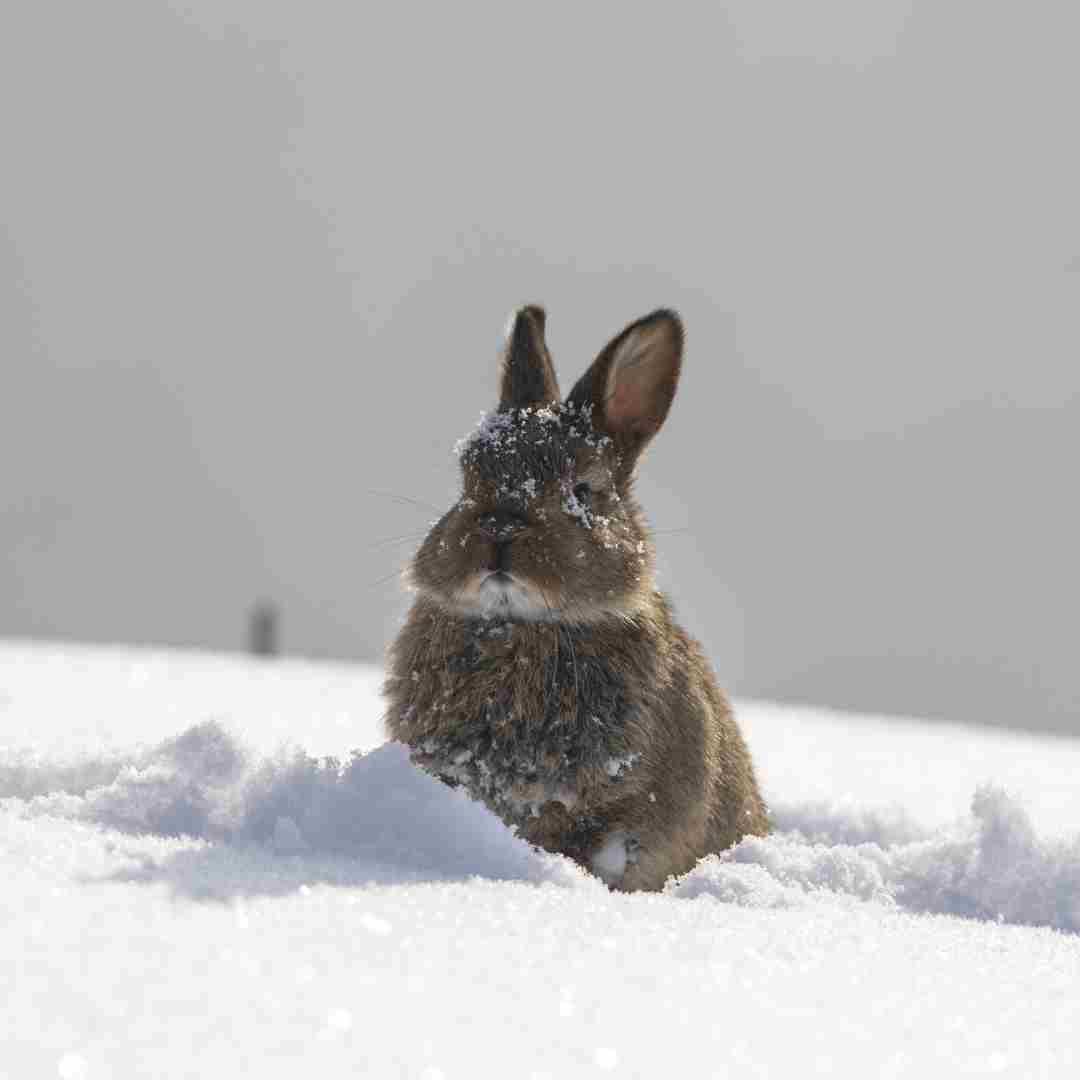How to Spot Cold Stress in Rabbits
If neglected, rabbits can get cold stress. Knowing rabbit cold stress symptoms will help you keep your pet safe and healthy.
Shivering, huddling, and lethargy are the most frequent cold stress symptoms in rabbits. Shivering means your rabbit is trying to generate heat to stay warm. Rabbits snuggle to conserve heat during cold conditions. If your rabbit is lethargic, they may be cold and need warming.
Reduced hunger, weight loss, and hair loss are further cold stress symptoms in rabbits. If your rabbit isn't eating much, they may be chilled. Due to poor digestion, cold stress can cause weight loss in rabbits. Finally, prolonged cold exposure can cause rabbits to lose fur.
If your rabbit exhibits any of these cold stress symptoms, warm them up. Keep your rabbit warm with plenty of bedding and a draft-free habitat. A heated pad or blanket can also keep your rabbit warm. If your rabbit still has cold stress, see a vet.
Keep Your Rabbit Warm in Cold Weather
Take extra precautions to keep your rabbit warm in chilly weather. Rabbits might get sick from prolonged cold exposure. Tips for keeping your rabbit warm in chilly weather.
1. Shelter warmly. Make sure your rabbit has a safe, dry shelter for cold weather. Ideal hutches and sheds have watertight roofs and insulated walls. Maintain a comfortable indoor temperature for your rabbit.
2. Provide extra bedding. Lay straw, hay, or shredded paper on your rabbit's hutch or cage floor. Insulating the area will keep your rabbit warm.
3. Use heat lamp. A heat lamp may keep your rabbit warm if the weather drops below freezing. Mount the lamp firmly and out of rabbit reach.
4. Dress your bunny. Consider outfitting your outdoor rabbit in a jumper or coat. This will warm and protect them.
5. Watch your rabbit. Check on your rabbit periodically to ensure warmth and comfort. Shivering or lethargy indicate distress, so warm them up immediately.
Follow these ways to keep your rabbit warm and healthy in cold weather.
Common Signs of a Cold Rabbit
Cold temperatures below 50°F (10°C) can make rabbits sick. To prevent your rabbit from getting cold, watch their habitat. Cold rabbit symptoms include:
1. Shivering: Your rabbit is too cold.
2. Huddling: Your rabbit is trying to preserve heat by huddling in a corner or ball.
3. Lack of Appetite: This could mean your rabbit is too cold to eat or drink.
4. Lethargy: If your rabbit is sleeping more than normal, they may be too chilly.
5. Cold Ears: If your rabbit's ears feel cold, they're too cold.
These symptoms indicate that your bunny needs to be warmed up. Maintain a warm, draft-free habitat and provide hay or straw bedding. Consult your vet if symptoms continue.
Winter Rabbit Warming Tips
1. Place your rabbit's hutch in a warm, draft-free room. Consider bringing the outside hutch inside in winter.
2. Use a heating pad or blanket to keep your rabbit warm in winter. Keep the pad cool and away from cables and other risks.
3. Add extra bedding to your rabbit's hutch to keep them warm. Good possibilities are straw, hay, and shredded paper.
4. Give your rabbit warm food and beverages in winter. This will keep them warm and energise them.
5. Keep your bunny active: Exercise your rabbit during winter. This will keep them warm and healthy.
6. Monitor your rabbit's health throughout winter. For any signs of disease, contact your vet immediately.
In Cold Weather, Make Your Rabbit Cosy
As winter comes, make sure your rabbit is comfortable and safe. Create a cosy winter environment for your rabbit with these tips:
1. Give your rabbit a warm, dry shelter when it becomes cold. A hutch, shed, or blanket-lined cardboard box could work.
2. Insulate the shelter to keep your rabbit warm. Spread straw or hay bedding and blankets or towels on the walls and floor to achieve this.
3. Provide heat: If the weather drops below freezing, your rabbit may need heat. This could be a heating pad, water bottle, or bulb. Avoid placing the heat source too close to your rabbit to prevent overheating.
4. Give your rabbit plenty of fresh food and water. This will keep them warm and healthy in winter.
5. Check on your rabbit: Make sure they're safe and comfy. Shivering or lethargy indicate distress; take them to the vet.
Following these tips can help you keep your rabbit warm throughout winter. This will keep your rabbit warm and safe in winter.
